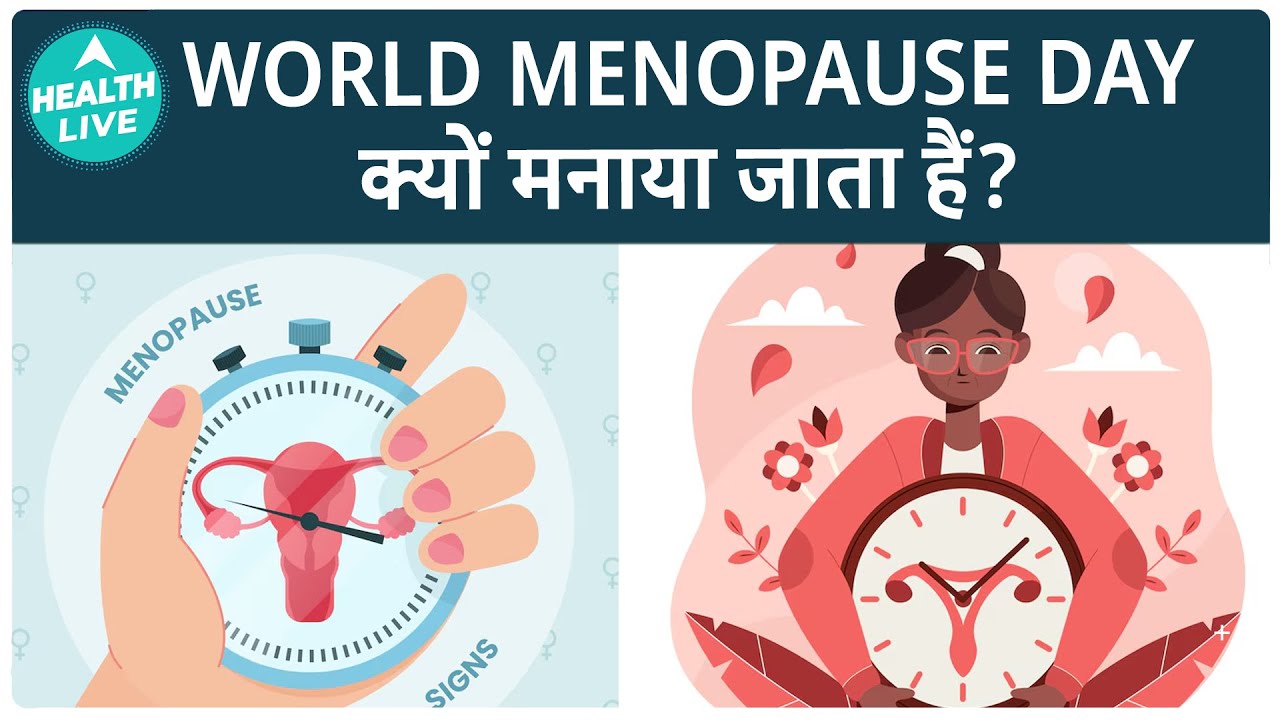Menopause is a natural biological process marking the end of a woman's menstrual cycle and fertility, typically occurring between the ages of 45 and 55. It is diagnosed after 12 consecutive months without a period. The phase leading up to menopause, called perimenopause, involves fluctuating hormone levels, causing symptoms like irregular periods, mood changes, and hot flashes.
After menopause, women enter the postmenopausal phase, where estrogen levels decrease significantly, leading to health concerns like osteoporosis and heart disease. To raise awareness and support women during this transition, World Menopause Day is observed annually on October 18. The theme for 2024 is "Menopause Hormone Therapy," highlighting the importance of hormone therapy in managing symptoms and improving long-term health outcomes.
It was established in 1984 by the International Menopause Society and WHO..


















